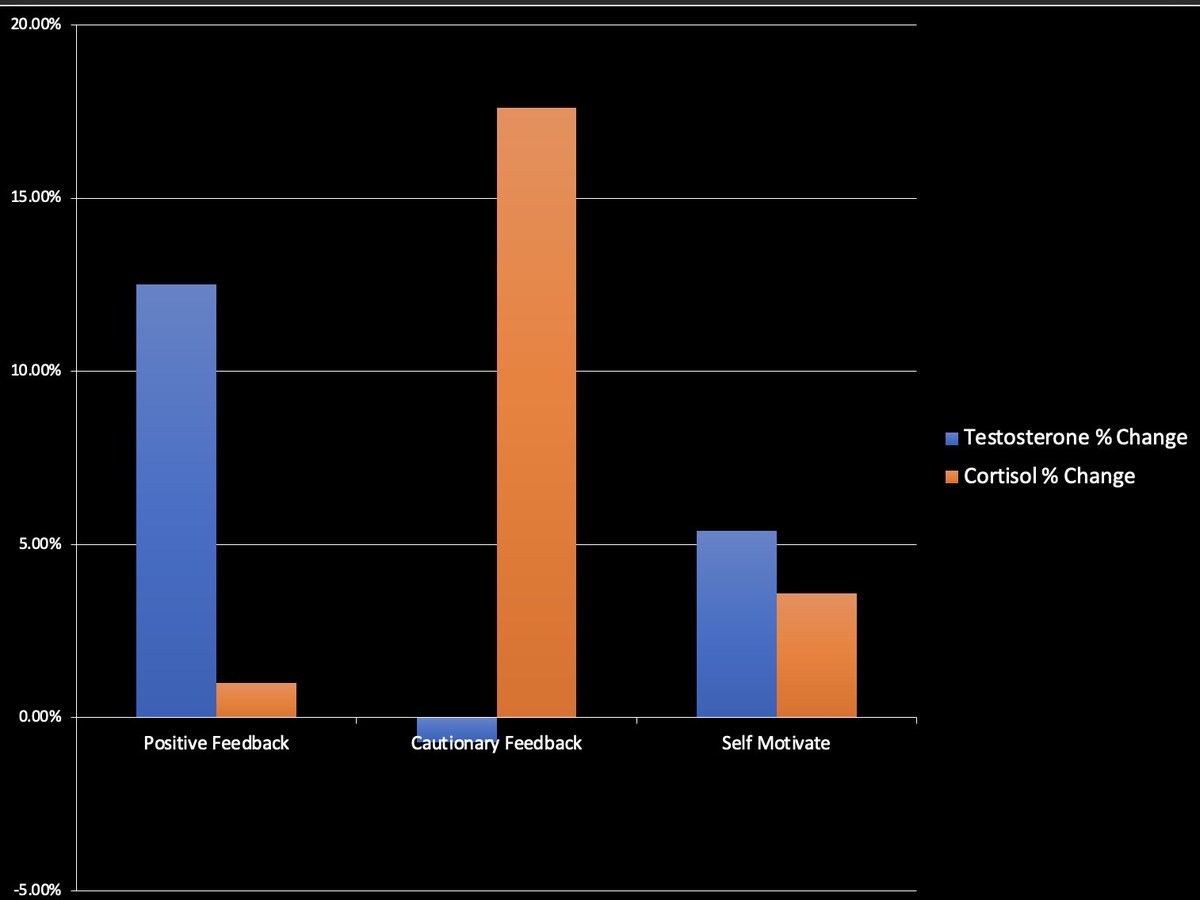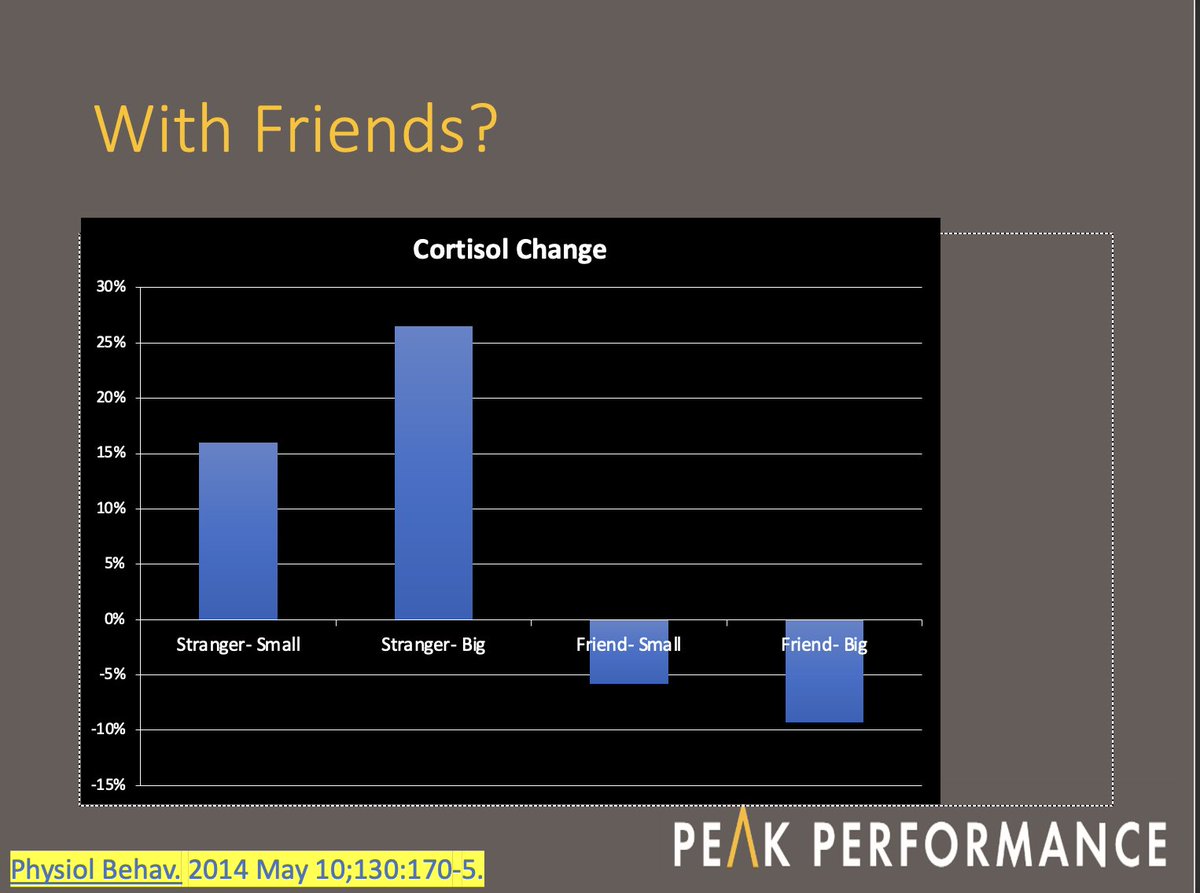
Leading into today's game, the Packer's defensive coordinator made his team watch last year's loss of the NFC championship.
Let's take a look at why focusing on the negative right before a big game might not be the best idea...
A Thread on hormones & priming for performance:
Let's take a look at why focusing on the negative right before a big game might not be the best idea...
A Thread on hormones & priming for performance:
What we watch can prime us for performance. We intuitively know this. We can sense our emotions and moods change as we watch something good or bad.
But what we often neglect is the hormonal impact that occurs, which can cause a performance impact for days.
But what we often neglect is the hormonal impact that occurs, which can cause a performance impact for days.
Let's walk through a few studies. In this study, researchers found watching a victory increased Testosterone levels by 44%. When watching a defeat, no significant change in T levels.
researchgate.net/publication/26…
researchgate.net/publication/26…
Why are acute Testosterone increases meaningful? They've been tied to everything from motivation to aggression to performance metrics.
But it's not just testosterone that's changed. The stress hormone cortisol often follows suit.
But it's not just testosterone that's changed. The stress hormone cortisol often follows suit.
In research on professional rugby players, they watched video with their coach 2hrs before a game, pointing out mistakes they'd made OR showing their successes
Watched mistakes? Increase in Cortisol & played worse.
Watched positive plays? Increase in Testosterone & played better
Watched mistakes? Increase in Cortisol & played worse.
Watched positive plays? Increase in Testosterone & played better

But that was right before a game, surely the effect doesn't last long?
In another study on rugby players, they had a video review with a coach walking through either what a player did well (positive) or what they did wrong (negative)
In another study on rugby players, they had a video review with a coach walking through either what a player did well (positive) or what they did wrong (negative)
A few days later before a demanding workout, the positive group had higher testosterone levels.
A full WEEK after the film review, the positive group had higher T levels going into the game AND played significantly better during the game.
A full WEEK after the film review, the positive group had higher T levels going into the game AND played significantly better during the game.
The same sort of effect occurs when watching film review with either teammates/friends or strangers. And our hormonal response is even impacted by the size of the stranger (i.e. bigger strange= see as a threat.) 

Now, there are individual variations to all of this, which is why it's important to understand who you are working with and what sort of change you are after.
There are all sorts of variations we could discuss. For example...
There are all sorts of variations we could discuss. For example...
People are more responsive to a person they know, then a video. So a video has a lower chance of negative response.
A coach or someone else who they are connected with or who has power over them has a greater chance of having both a positive, but also negative outcome.
A coach or someone else who they are connected with or who has power over them has a greater chance of having both a positive, but also negative outcome.
And it's not just in "priming" for performance that this interconnection of psychology and biology occurs
If you cool down or debrief with friends casually, stress hormones drop quickly. If you are ruminating on your own or you mindlessly scroll, stress hormones levels stay high
If you cool down or debrief with friends casually, stress hormones drop quickly. If you are ruminating on your own or you mindlessly scroll, stress hormones levels stay high
But the point is, our pre/post-game videos, discussions, routines, hype videos, etc. all "prime" us in a certain direction. As much thought and care that goes into designing your warm-up routine, should go into your pre-game message.
Motivation is tough. It's not as simple as playing a hype video or making people angry. It's individualized. And with each nudge of your mood and emotions, each shift of hormones, you may be putting someone in a better or really bad place to perform.
If you are interested in priming for performance, I discuss it some in Peak Performance, and I'll be covering it in more detail in future newsletters, which you can find here: thegrowtheq.com/newsletter-sig…
• • •
Missing some Tweet in this thread? You can try to
force a refresh



